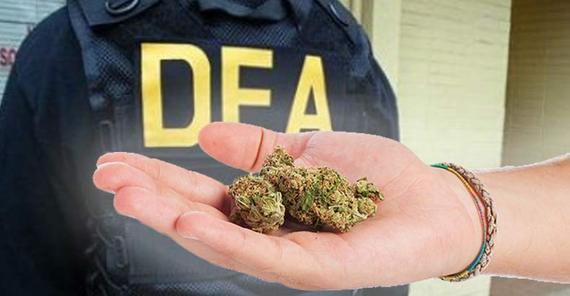DEA plans to start issuing cannabis cultivation licenses in early 2021

The U.S. Drug Enforcement Administration (DEA) is set to begin distributing licenses among cannabis research applicants who wish to grow the plant for investigative purposes.
Scientists and researchers have been waiting for this moment for years, what with the agency postponing the issuing of cannabis research applications repeatedly since it said it would start reviewing them in 2018.
“I expect them to start issuing licenses no later than the first half of 2021,” said the president of Florida-based Maridose, Richard Shain. The company, which strives to be a “a world-class Federally licensed cannabis cultivation and research Center of excellence,” is one of around 30 federal cannabis cultivation permit applicants.
DEA published final rule for cannabis cultivation expansion on December 18
The announcement that stipulates the DEA might start issuing cannabis cultivation permits comes just a few weeks after the Administration published its final rule on the issue. December 18 was the date on which the agency announced its plans to expand the number of research-grade cannabis cultivators who receive federal approval.
Currently, just one grower – the University of Mississippi – is allowed to grow the plant for research purposes in the U.S. The goal is to increase this number to somewhere between three and 15, or possibly more, according to the new rule.
“DEA believes a range of three to 15 growers is a reasonable estimate for purposes of this economic analysis, with the understanding that the actual number could vary considerably,” the newly published rule notes.
New York-based Columbia Care, Nevada-based GB Sciences, Alaska’s Green Leaf, Colorado’s NuVue Pharma and PharmaCann in Illinois are just a few of the state-legal cannabis businesses believed to have submitted research applications to the DEA.
The following universities and institutes have also applied for cannabis research licenses with the DEA:
- Fraunhofer USA in Delaware.
- The University of Massachusetts.
- The University of California, Davis.
- The Scottsdale Research Institute in Arizona
State-legal cannabis company applicants will “not [be] viewed favorably,” based on the DEA’s new research cannabis cultivation rule, which could be translated to “not going to happen,” according to Shain of Maridose.
A brief recap of cannabis research efforts in the U.S.
The first ever federal contract to cultivate cannabis for study purposes was issued in 1968 to the Research Institute of Pharmaceutical Sciences at the University of Mississippi School of Pharmacy. Since this time, the university has been the only government-certified grower of its kind in the U.S.
During the Obama Administration’s final year, the DEA promised to expand cannabis-growing opportunities for researchers. However, the DEA put applications on the backburner under the Trump administration. Fast-forward to this March 2020 and the DEA finally proposes its newly-published rule, which was slightly amended before being publicly disclosed on December 18.
Congress just approved two bills related to cannabis research
Something else that also happened at the end of 2020 was the U.S. House of Representatives passing its own-drafted bill, H.R. 3797. The bill urged for more federally-approved growers to join the cannabis research movement. Included in the bill – under section 2Bi – was a segment of legal language pertaining to the rights that researchers would have.
Based on the language, researchers who are approved by the DEA to grow cannabis for study purposes would be legally allowed to obtain the plant from state-legal markets. With this rule in place, a new window of opportunity opens up for cannabis researchers in the U.S. — they could freely investigate the quality, safety and overall effects of flower sold by licensed and actively operating companies.
During the same month, the Senate passed of a similar chunk of legislation — a bipartisan vote on December 15 led to the expansion of cannabis and CBD research.












